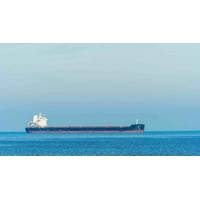Austrian Parties Plan to use Brexit to Reopen EU Nuclear Power Pact
Austria has opposed the use of nuclear energy ever since a majority backed that position in a referendum in 1978, when the country's first nuclear power plant was ready to be brought into service. The plant never went into operation.
The conservative People's Party (OVP), led by Foreign Minister Sebastian Kurz, which won a parliamentary election on Oct. 15, and the far-right Freedom Party said on Friday they planned to keep that anti-nuclear position once a government was formed, and to defend it on the international stage.
A joint statement issued after a day of talks on environmental issues said they planned to "intervene in the context of Brexit negotiations in favour of a revision of the Euratom treaty, with the goal of making states that fully renounce nuclear energy or want to renounce it in future better off financially".
What kind of advantage they hoped to secure for like-minded countries was not specified. FPO and OVP spokesmen were not immediately available for comment.
Britain has said it hopes to ensure a smooth transition as it leaves the Euratom regulatory regime, but that has not so far prompted plans to renegotiate the Euratom treaty, the main agreement on nuclear regulation and cooperation within the bloc.
"We now want to use the Brexit negotiations to bring up this issue, including during our (European) Council presidency in the second half of 2018," Elisabeth Koestinger, chairwoman of the People's Party and a senior negotiator in the coalition talks, told a joint news conference with a counterpart from the FPO.
Although several countries, including Germany and nuclear-heavy France, have decided to move away from atomic energy since the Fukushima Daiichi disaster in Japan in 2011, reopening European treaties is extremely difficult and it is unclear what support Austria would have for such a move.
Friday's five-page statement listed other environmental plans, including for all of Austria's electricity to be produced from renewable sources by 2030.
Austria produces more than 30 percent of its energy from renewable sources, the fourth-highest proportion in the European Union after Sweden, Finland and Latvia, according to EU statistics agency Eurostat.
Kurz hopes to wrap up the coalition talks by Christmas. Whether that target will be met is unclear but a collapse of the talks appears unlikely.





